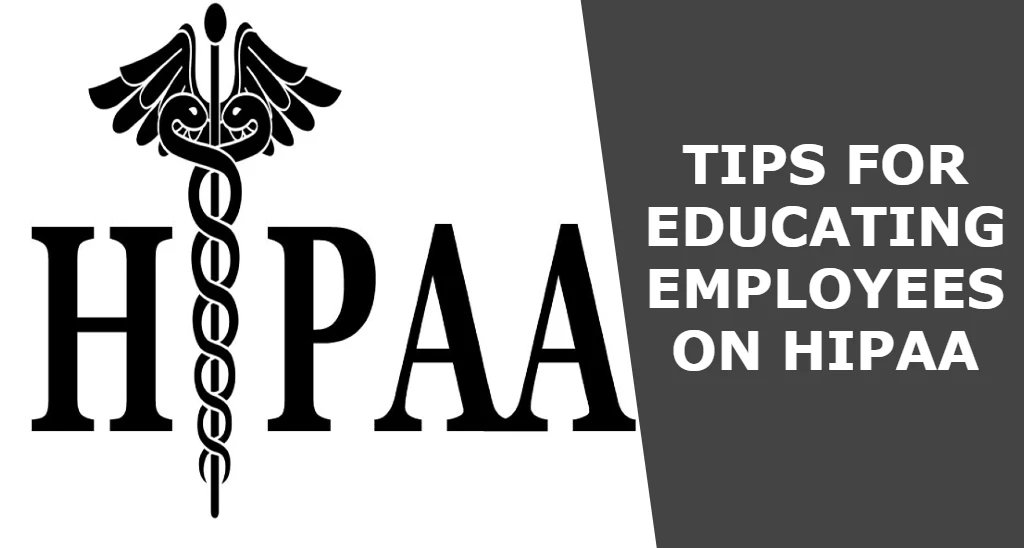It was enacted in 1996 as the Health Insurance Portability and Accountability Act, or HIPAA. HIPAA is synonymous with patient privacy and security, despite its origins as a way to streamline healthcare delivery and cut costs. Clients aren’t the only ones who benefit from HIPAA compliance training. Employees are also empowered by it. Your HIPAA-compliant firm relies on employees who handle patient information. Here are five tips for making HIPAA compliance easier for your staff, from holding pieces of training to implementing a solid social media policy.
-
Education
Educating and training your employees about HIPAA policies and procedures is the first step to ensuring that your firm remains HIPAA compliant. Although it may appear an unnecessary reminder, HIPAA infractions are vitally essential to avoid. All personnel, not just new hires, should be trained. Make that they are aware of the consequences of a HIPAA breach. When it comes to preventing an accident, preparation is the key. Some words, such as “unencrypted email,” may be common knowledge to one team member but unfamiliar to another. Hence, to avoid a data breach, your business must provide employees with comprehensive training on HIPAA compliance rules and what they entail. Take the time to learn about your employees’ preferred methods of learning. Hands-on training may work better for one set of staff than digital training, but it may not work well for the other. Thus, to make sure that your employees are truly taking in the knowledge, you should avoid providing them with an excessive amount of it.
-
Identify the potential dangers
Let your HIPAA Privacy or Security Officer undertake an internal audit to assess how your employees are doing with their HIPAA compliance. Does anyone in the family know where they may turn if they have any concerns? Are they aware of how they may be infringing HIPAA rules without even realizing they’ve done so? Preventing such disasters can be done by identifying any risks or faults in your policies early on. Audit a training session with an outside HIPAA officer to ensure that all information is conveyed appropriately. Concerning HIPAA, out-dated or misunderstood regulations can have serious consequences.
-
Device Regulation
Stolen computers and other electronic devices cause about 48 percent of HIPAA breaches. Remind employees to keep PHI off of their own mobile devices. Remind your employees to access and store PHI on electronic devices regularly. “Your organization’s portable device policy should clearly define where devices can be moved and what to do if a device is lost or stolen,” according to the Pharmaceutical Compliance Monitor. Secure passwords should be used, and they should be updated regularly. It’s never a bad idea to revisit your portable device policy from time to time.
-
Social Media Training
Many people see social media as a double-edged sword. There are many benefits to using this technology, but it also has the potential to do a lot of harm as well. Establish and enforce a firm social media policy. As we noted in a previous blog, social media is sometimes disregarded regarding HIPAA. If an employee posts a snapshot of their lunch on Instagram with patient documents on the table or a video of the next-door treatment room on Facebook, the patient’s privacy may be compromised. These are severe HIPAA infractions that your employees may be committing without your knowledge. Complying with HIPAA requires a Social Media Policy that’s equally strict and comprehensive.
-
Continuous Updates
It’s not enough to attend a HIPAA training session once a year. You want to ensure that your employees know the latest HIPAA regulations. Hold re-certification sessions. Test your employees throughout the year. Do whatever it takes to maintain them up to date since it will only serve your company well. As a case study, Mayo Clinic aims “to get out to staff numerous times a year for training sessions, whether it be through grand rounds, via the internet, mail or even via the CEO.” Keep your employees informed on HIPAA requirements and developments to accomplish their duties while adhering to the law.
When and how to implement HIPAA training
It’s good to know that, even though your firm is legally compelled to provide HIPAA training to employees, you probably already have some HIPAA-compliant processes in place. HIPAA compliance training can be implemented in three simple phases, as outlined below;
-
First step: Find out where you are
Take a look at your company’s current compliance status. Do you adhere to industry standards for internet security, even regarding emails sent by employees and files stored on your server? You can begin by looking at that. It’s much better if you have a procedure to integrate new staff with a uniform email and password setup, and that assessment is scheduled regularly.
-
Second step: Customize your company’s education and training needs
You may have a robust digital system must be established, but your personnel requires additional training on what exactly is protected and why that is the case. Using e-Learning and microlearning, you may quickly and effectively roll out new training sessions and regulatory updates once you know what you need.
-
Third step: Assess, pivot, and repeat
Ultimately, HIPAA compliance education aims to safeguard your patients, not only satisfy a statutory mandate. HIPAA training standards can be accomplished and tested by using gamification. Employees with knowledge gaps or who require additional training should adopt a learning plan tailored to their learning style and the specific information they need. Annual refresher courses can help keep employees up to date and compliant with the latest regulations.


